Latest News
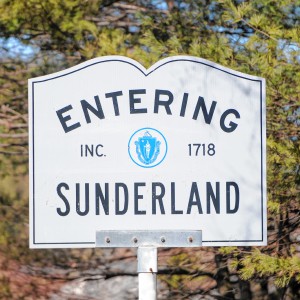 No surprises in uncontested Sunderland races
No surprises in uncontested Sunderland races
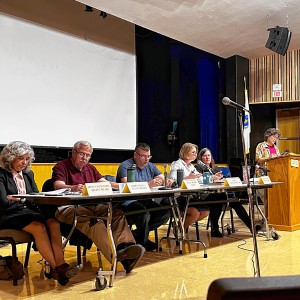 Buckland backs short-term rental bylaw
Buckland backs short-term rental bylaw
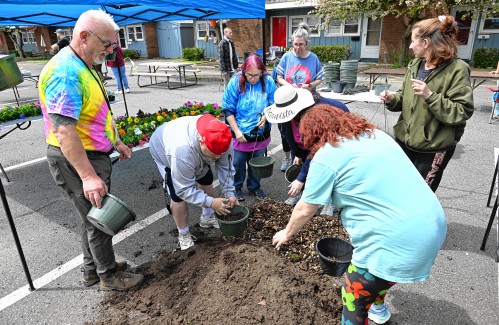
Providing opportunity for people to grow: The United Arc of Franklin County’s annual Gardening with Steve event a highlight of spring
Steve McConley credits his wife, Doreen, for his interest in growing plants. Doreen brought solid gardening skills to their union, and Steve appreciates her encouragement. The McConleys have a garden at their Bernardston home, and now Steve shares...
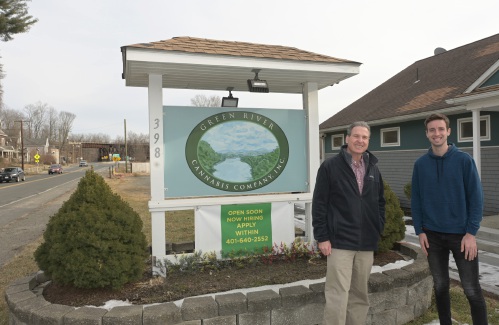
Change in federal drug classification could help cannabis shops
In the wake of the Justice Department’s proposal to reclassify cannabis as a less dangerous drug, dispensary owners say the change would help their business, especially on taxes.“The immediate impact would be for the government to treat us like other...
Most Read
 Bridge of Flowers in Shelburne Falls to open on plant sale day, May 11
Bridge of Flowers in Shelburne Falls to open on plant sale day, May 11
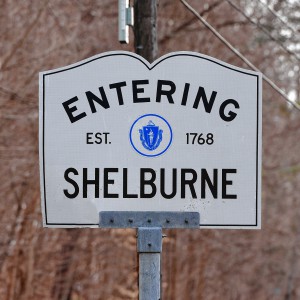 Serious barn fire averted due to quick response in Shelburne
Serious barn fire averted due to quick response in Shelburne
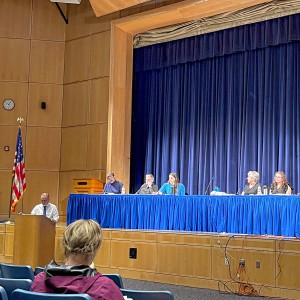 $12.14M school budget draws discussion at Montague Town Meeting
$12.14M school budget draws discussion at Montague Town Meeting
 As I See It: Between Israel and Palestine: Which side should we be on, and why?
As I See It: Between Israel and Palestine: Which side should we be on, and why?
 Greenfield homicide victim to be memorialized in Pittsfield
Greenfield homicide victim to be memorialized in Pittsfield
 ‘We are among the leaders’: Ashfield Town Meeting voters pass bevy of clean energy proposals
‘We are among the leaders’: Ashfield Town Meeting voters pass bevy of clean energy proposals
Editors Picks
 Greenfield Notebook: May 6, 2024
Greenfield Notebook: May 6, 2024
 PHOTO: River runway
PHOTO: River runway
 North County Notebook: May 7, 2024
North County Notebook: May 7, 2024
 Regional Notebook: May 6, 2024
Regional Notebook: May 6, 2024
Sports

Swayman stops 38 shots, Bruins roll past Panthers 5-1 for 1-0 series lead
SUNRISE, Fla. (AP) — Jeremy Swayman stopped 38 shots, Brandon Carlo scored a goal just a few hours after his wife gave birth to their son and the Boston Bruins topped the Florida Panthers 5-1 in Game 1 of their second-round playoff series Monday...
Opinion

Guest columnist Gene Stamell: We know what we know
Columnist’s note: The following contains many parenthetical asides and seemingly unimportant details that somehow, one hopes, lead to a conclusion that the reader finds moderately interesting or entertaining or, at the very least, bearable. Once...
 Michelle Caruso: Questions candidate’s judgment after 1980s police training incident
Michelle Caruso: Questions candidate’s judgment after 1980s police training incident
 Shirley and Mike Majewski: Vote for Blake Gilmore
Shirley and Mike Majewski: Vote for Blake Gilmore
 Kathy Sylvester: Vote for expertise on May 6
Kathy Sylvester: Vote for expertise on May 6
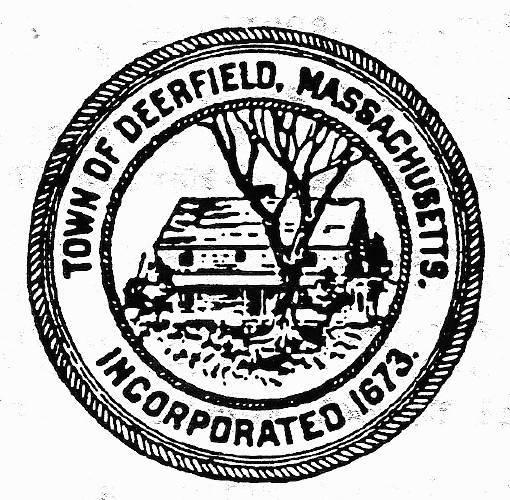 Bernie Sadoski: Blake Gilmore is committed to his community
Bernie Sadoski: Blake Gilmore is committed to his community

Business

Fogbuster Coffee Works, formerly Pierce Brothers, celebrating 30 years in business
GREENFIELD — Three decades ago, Sean and Darren Pierce, two brothers in their mid-20s, decided to start selling coffee — a business venture that was funded by a roughly $30,000 mountain of credit card debt.Today, the Greenfield-based Fogbuster Coffee...
 Goddard finds ‘best location’ in Shelburne Falls with new Watermark Gallery space
Goddard finds ‘best location’ in Shelburne Falls with new Watermark Gallery space
 New buyer of Bernardston’s Windmill Motel looks to resell it, attorney says
New buyer of Bernardston’s Windmill Motel looks to resell it, attorney says
 New Realtor Association CEO looks to work collaboratively to maximize housing options
New Realtor Association CEO looks to work collaboratively to maximize housing options
 New owners look to build on Thomas Memorial Golf & Country Club’s strengths
New owners look to build on Thomas Memorial Golf & Country Club’s strengths
Arts & Life

Speaking of Nature: Capturing my Bermuda nemesis: The Great Kiskadee nearly evaded me, until I followed its song
We’ve reached that point in the school year when it is actually painful (I mean physically painful) for me to leave my yard in the morning. May is the true month of the reawakening and blooming of Nature’s splendor and last week she was in full...
Obituaries
 Richard Powers
Richard Powers
Richard "Dick" Powers Northfield, MA - On May 2, 2024 Richard "Dick" "Dickie" Powers, 79, passed away at the home of his daughter, with his daughters by his side, following a long battle with vascular and frontotemporal dementia. He was ... remainder of obit for Richard Powers
 Edwin J. Nartowicz
Edwin J. Nartowicz
Northampton, MA - Edwin J. Nartowicz, 100, of Northampton, passed away on Thursday, April 25, 2024, surrounded by his loving family at Cooley Dickinson Hospital. He was born in South Deerfield on November 7, 1923, to the late John and A... remainder of obit for Edwin J. Nartowicz
 Karen R. Adams
Karen R. Adams
Karen R Adams Bernardston, MA - Please join us as we celebrate the life for Karen R Adams on Saturday May 25, 2024, at Mt Toby Friends Meetinghouse located at 184 Long Plain Rd Leverett MA. Service will begin at 11:00 am, please join us ... remainder of obit for Karen R. Adams
 Susan R. Johnson
Susan R. Johnson
Greenfield, MA - Susan R. Johnson, 53, passed away unexpectedly on April 25, 2024. She was born in Gardner, MA on April 26, 1970 the daughter of Rene and Margaret (Ackert) Charette. She enjoyed going to the beach, tanning and art. S... remainder of obit for Susan R. Johnson

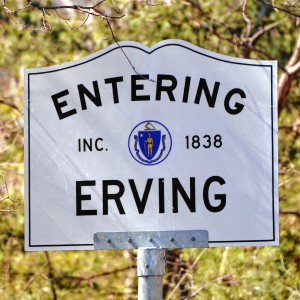 Employee pay, real estate top Erving Town Meeting warrant
Employee pay, real estate top Erving Town Meeting warrant
 Western Mass school leaders rally for funding at State House
Western Mass school leaders rally for funding at State House
 Franklin County reps speak to House budget amendments
Franklin County reps speak to House budget amendments
 Colrain voters to decide Selectboard, moderator races
Colrain voters to decide Selectboard, moderator races
 Longtime moderator retains position in Ashfield election
Longtime moderator retains position in Ashfield election
 Softball: Ainslee Flynn’s walk-off hit lifts Greenfield past Hampshire in 10-inning thriller
Softball: Ainslee Flynn’s walk-off hit lifts Greenfield past Hampshire in 10-inning thriller Roundup: Pioneer baseball wins Suburban League West title following 2-0 win over Hopkins
Roundup: Pioneer baseball wins Suburban League West title following 2-0 win over Hopkins High schools: Frontier boys tennis wins again, improves to 7-3 (PHOTOS)
High schools: Frontier boys tennis wins again, improves to 7-3 (PHOTOS) Bulletin Board: Scoville, Conte help Westfield State softball capture MASCAC regular season title
Bulletin Board: Scoville, Conte help Westfield State softball capture MASCAC regular season title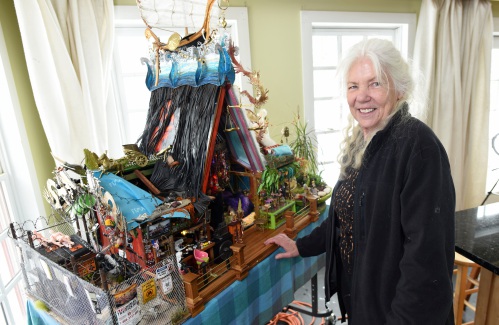 The house that therapy built: Multimedia artist Lisa Winter to display “My House” at the Wendell Meetinghouse this Sunday
The house that therapy built: Multimedia artist Lisa Winter to display “My House” at the Wendell Meetinghouse this Sunday Fun Fest returns to Turners Falls: Música Franklin hosts 6th annual family-friendly, free event, May 11
Fun Fest returns to Turners Falls: Música Franklin hosts 6th annual family-friendly, free event, May 11 Valley Bounty: Delivering local food onto students’ plates: Marty’s Local connects farms to businesses
Valley Bounty: Delivering local food onto students’ plates: Marty’s Local connects farms to businesses Let’s Talk Relationships: Breaking up is hard to do: These tools can help it feel easier
Let’s Talk Relationships: Breaking up is hard to do: These tools can help it feel easier
